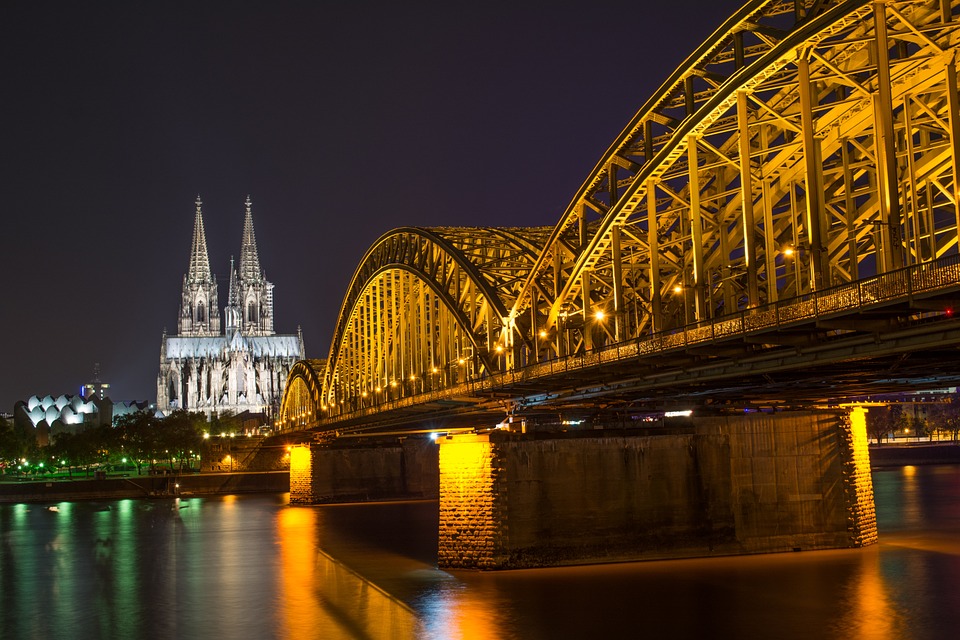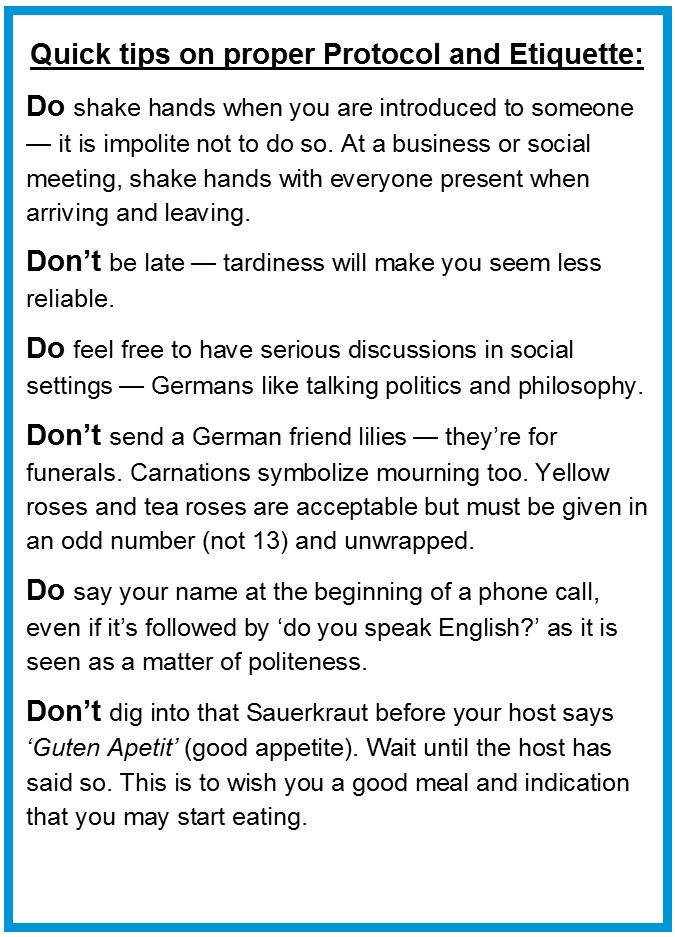In View: Germany
Indiana’s Relationship with Germany
Indiana and Germany’s bond is solidified by a strong heritage, with many Hoosiers having German roots. From the Indiana German Heritage Society to the Max Kade German-American Center of Indiana University-Purdue University in Indianapolis, to Amish Acres in Nappanee, the German culture is integral to the fabric of our state. Many cities and towns have a German-American club.
There are also German singing and dance groups as well as sports clubs. From the harmonies of one of the nation’s oldest continuously active singing organizations, to the presence of gymnasiums in public schools to the Soldiers’ and Sailors’ Monument at the heart of the city, people of German descent have been responsible for countless contributions to Indianapolis culture. Moreover, Indianapolis and Cologne enjoy an active sister city relationship, among a number of other sister cities in Germany. Germany is also the 3rd largest foreign investor in Indiana with German companies being responsible for about 12,500 jobs in the state. Located in Berlin, the IU Europe Gateway is IU’s third such facility for international faculty and student activities.
Cultural Insight
“Höflichkeit” (Courtesy)
It may be more difficult to make friends initially in Germany — an expat family will need to go and introduce themselves to their neighbors. This is because German culture is not a relationship-driven but a task-orientated culture.
“Zeitmessung” (Time-management)
In Germany, punctuality is said to be the ‘politeness of kings’. People are expected to be on time as this shows respect to others.
Clear divisions
German people tend to compartmentalize life and business and this is shown in many areas. For instance, work relationships are kept separate from social relationships. Similarly, job roles are specialized and experts from each department will attend cross-functional meetings.
German Holidays
In order to better understand German Holidays The International Center’s Programs and Services Intern, Swati Pradeep sat down with Martin Baier, Vice President of Programs and Services.
SP: Germans take pride in traditional celebrations, whether it is patriotic, religious or personal. Could you tell me about Tag der Deutschen Einheit (Day of German Unity)?
MB: The unification day is October 3rd and is a national holiday. The reunification was in 1990. Since it was implemented just 25 years ago, it is not a traditional holiday and people just enjoy the day off. The president, chancellor, as well as other members of the federal government give speeches, public addresses and statements commemorating the fall of the wall and the reunification. Its not celebrated like the 4th of July here in the U.S., but just an additional holiday for a regular person. One of the chancellors in 2004 suggested the date be changed to the first Sunday of October so as to not affect businesses but was advised to stay with the actual date.
SP: Halloween does not exist in Germany, but instead All Saints Day is celebrated on November 1. How is it celebrated?
MB: It is a festival where you remember the people that have passed away. Families go to the graveyards and visit the graves of their family members and light candles just as it is about to get dark, the tradition seems to be dwindling among the younger generations. Also some of the religious holidays are reducing because of lesser membership at the church. It is a Catholic holiday and is celebrated in 5 states, one of which is where I am from.
SP: Due to the large German population, Oktoberfest is widely celebrated in the United States as well. Is it very similar to the way it is celebrated in Germany?
MB: Only to a certain extent. There were a large number of German immigrants who came in with industrial revolution and the exploration of the West and through that brought their German culture with them. Oktoberfest is celebrated in one state and one city, Munich. It was the celebration of the wedding of the King of Bavari during the end of September. When I was growing up, you heard about the Oktoberfest only in one area. It is not a national celebration. Beer forms the biggest part of the festival followed by the playing of traditional music. There are large breweries within large tents than can hold hundreds of people and are taken down once the festivities are done. They are rebuilt again once the summer starts. My first experience of the Oktoberfest was when I was in the military. Here in the U.S., Cincinnati has a very rich historical German culture and they also have a Bavarian type of brew house.
By Swati Pradeep, Programs and Services Intern
March 18th from 8:30 am -12:30 pm, The International Center will be hosting the German Cross-Cultural Communications Workshop. Click on the image below to register for this workshop for an overview on German culture and protocol with Martin Baier, VP of Programs and Services.



